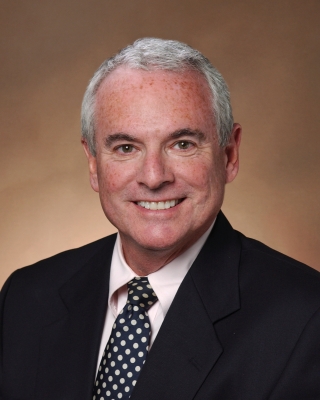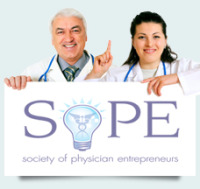Innovating In Health Care As A Young Physican
 Looking to change healthcare with your new idea but don't know where or how to start?
Looking to change healthcare with your new idea but don't know where or how to start?
Look no further...
Arlen D. Meyers MD MBA, is the cofounder, and Chief Medical Officer of MedVoy, a medical tourism company. His is also a Professor of Otolaryngology, Dentistry and Engineering at the University of Colorado at Denver. He has authored of a new book called The Life Science Innovation Roadmap: Bioscience Innovation Assessment, Planning, Strategy, Execution, and Implementation and currently serves as CEO and President of the Society of Physician Entrepreneurs at www.sopenet.org
I asked if he could give a quick overview of the change in healthcare that is happening right now and some areas where these changes are creating opportunities for young physician entrepreneurs to make a big impact.
Enter Dr. Meyers
None of us needs to be told that the US healthcare system is undergoing change. Designed for yesteryear and showing signs of dysfunction and age, our system is cracking under the strain of an aging population, escalating costs and poor technological progress.
Things have changed in several important ways:
- Health Insurance Reform and changes to the Reimbursement model
- Decentralized patient–centered care
- Downsizing /right-sizing the healthcare workforce
- Electronic medical records, healthcare information exchanges and data analytics/BI
- Acute to preventive care
- Disconnected to integrated care
- Medical travel: The search for value-based care
- Mobile health
- The emergence of non-US markets for biomedical innovation
- Increasing regulatory scrutiny
- The changing intellectual property landscape
- New healthcare delivery models: telemedicine, concierge medicine, hospitalists
- Physician-industry conflict of interest and transparency requirements
These market shifts can be lumped into four categories, each an opportunity for you to make a difference.
The first is healthcare information technology. The infrastructure emerging has four basic components: electronic medical records, health information exchanges, data analytics and business intelligence and telehealth/telemedicine. They all serve as elements of a rapidly evolving national healthcare information architecture that will be second nature to you and your patients someday. Using the system will be as easy as putting your card in an ATM machine in Nairobi and getting US dollars.
The second category are those changes and models designed to deliver care more efficiently and effectively than the present face-to-face model, where the patient has to come into an office or hosptial to see the doctor for minor check ups or follow up visits. Examples include on-site clinics located in businesses, disease management facilities, intermediate care clinics and pharmacy based offices.
The third group attempts to make billing and collection better, faster and cheaper. Processes like identity verification and authorization, real time benefits verification, dependent validation and benefits comparisons are designed to make sure the right person is getting paid the right amount for the right reasons.
Finally, the ground is shifting under the biomedical innovation infrastructure. Changes in regulatory rules concerning manufacturing, marketing, FDA approval, and intellectual property are but a few of the manifestations. There are huge opportunities to create positive change for the way doctors treat disease.
If entrepreneurship and innovation sound interesting to you, start learning about it now. (in medical school, residency, or even college as a premed) This is not something you will get during your medical training and there are lots of resources to help young physicians learn the world of bio innovation.
________________________________________________________________
A big thanks to Dr. Meyers, and if you want to learn more...
Join the Society of Physician Entrepreneurs, it's free and there are a ton of great resources to help doctors learn to be entrepreneur. Check out SoPE Here
Check out Dr. Meyer's new book The Life Science Innovation Roadmap: Bioscience Innovation Assessment, Planning, Strategy, Execution, and Implementation.


 4 Comments
4 Comments





"I wouldn't do it twice, but I would not 'not' do it once."
- ZDoggMD